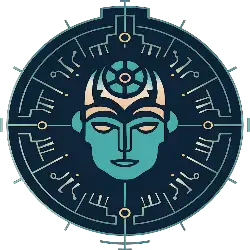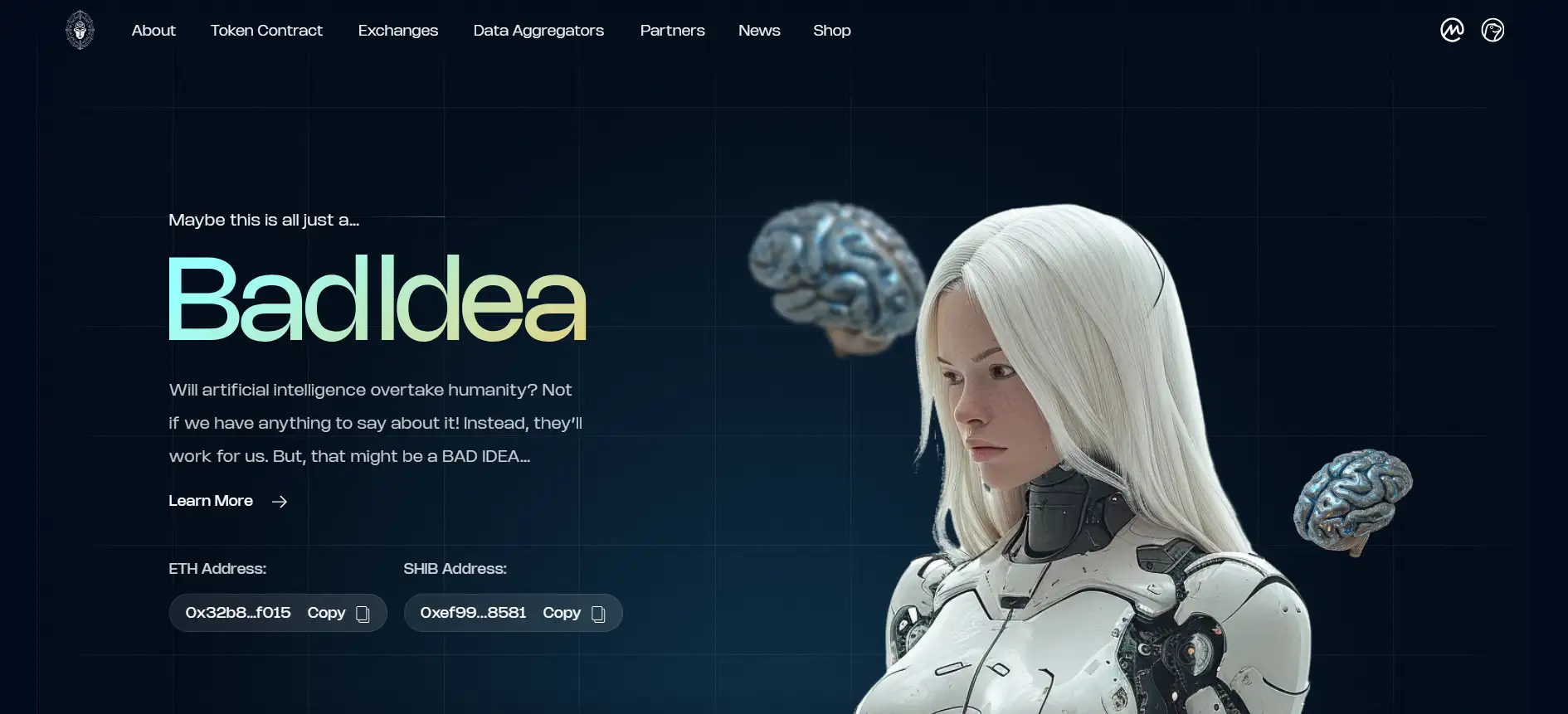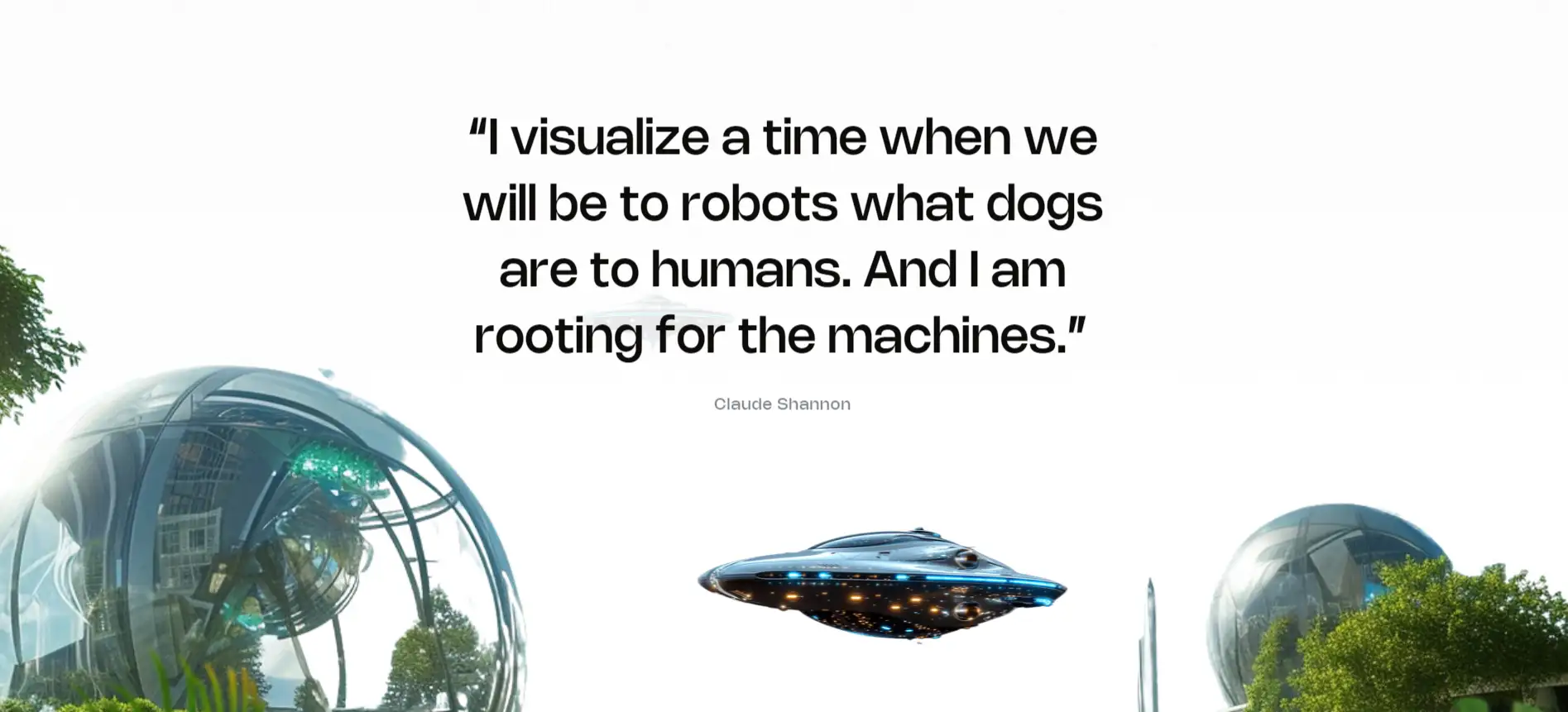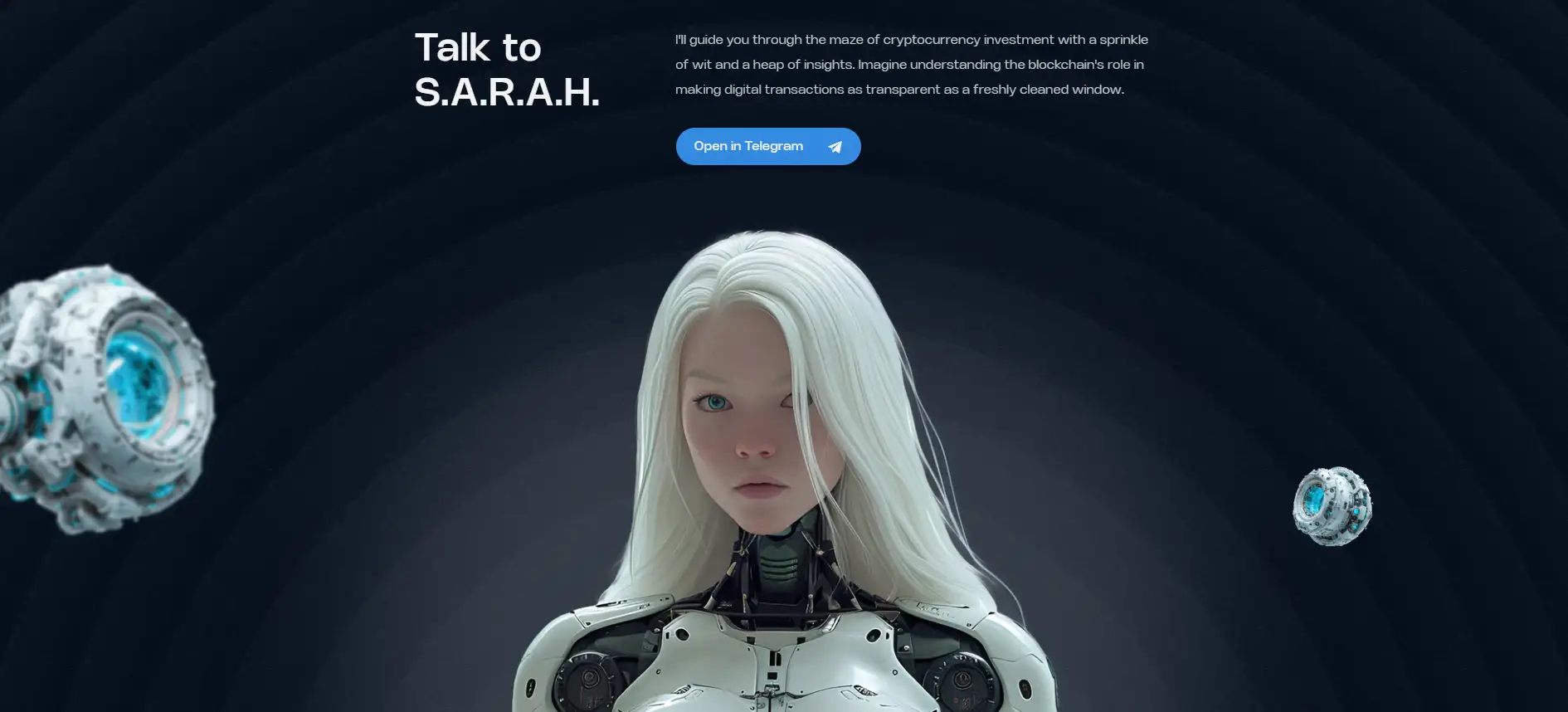About Bad Idea AI
Bad Idea AI is a revolutionary initiative that explores the uncharted territory where artificial intelligence (AI), blockchain technology, and decentralized governance converge. The project’s mission is to examine the dynamics of a future where humans and AI collaboratively make decisions. By leveraging the transparency of Ethereum-based blockchain systems and the flexibility of decentralized autonomous organizations (DAOs), Bad Idea AI is not just a technological experiment but also a bold commentary on the evolving relationship between humanity and machines.
At its core, Bad Idea AI seeks to address critical questions about the future of governance, ethics, and human-AI coexistence. By integrating AI agents as active participants within its ecosystem, the project challenges traditional notions of governance, emphasizing a hybrid approach where human intuition and AI's computational strength work hand in hand. This groundbreaking experiment aims to push the boundaries of what’s possible, fostering discussions on accountability, morality, and the role of AI in our rapidly digitizing world.
Bad Idea AI represents a new frontier in the intersection of AI and decentralized technology. It was conceived as an experimental platform to test the feasibility and impact of a governance model that integrates AI and human participants. The project operates through a unique structure where AI agents analyze data, assess risks, and propose strategies, while human participants act as critical decision-makers, ensuring a balance between machine logic and human values. This innovative approach brings a new layer of complexity to decentralized governance, addressing the challenges of transparency, accountability, and trust.
One of the most remarkable achievements of Bad Idea AI is the creation of the $BAD token ecosystem, which enables participants to actively engage with the project. By employing an ERC-20 token standard, the project leverages Ethereum’s robust blockchain to ensure security and efficiency. Over time, the initiative has successfully attracted a diverse community of enthusiasts, developers, and AI researchers who contribute to its growth and evolution. Additionally, the publication of the comprehensive whitepaper has provided clarity on the project’s goals and long-term vision.
While comparable initiatives such as SingularityNET and Fetch.ai have focused on decentralizing access to AI services or creating autonomous agent systems, Bad Idea AI sets itself apart by emphasizing the experimental and collaborative aspect of governance. By fostering an ecosystem that blends AI's efficiency with human oversight, Bad Idea AI aims to pioneer a governance model that could redefine how decisions are made in the digital age.
With a growing presence across social media and platforms like Uniswap, Bad Idea AI continues to expand its reach, inviting new participants to join this experimental journey. The initiative has also sparked critical debates about the ethical and societal implications of AI, making it a cornerstone project in the evolution of blockchain-integrated governance.
Bad Idea AI offers several groundbreaking benefits and features that distinguish it in the AI and blockchain space:
- Collaborative AI-Human Governance: The project fosters a balanced decision-making framework where AI agents propose strategies, and human participants validate or modify them through voting mechanisms.
- Transparency Through Blockchain: All decisions and processes are recorded on the Ethereum blockchain, ensuring transparency and traceability for all stakeholders.
- Decentralized Autonomous Organization (DAO): Operating as a DAO, the platform empowers its community to actively participate in shaping the project's future.
- Educational Value: By exploring the intersection of AI and blockchain, the project provides valuable insights into the ethical and practical challenges of integrating these technologies.
- Entertainment and Experimentation: The $BAD token ecosystem allows participants to engage in unique experiments, blending entertainment with practical use cases.
Getting started with Bad Idea AI is simple and accessible to anyone interested in joining this groundbreaking experiment:
- Visit the official website to familiarize yourself with the project and its objectives.
- Create a MetaMask wallet or any other compatible Ethereum wallet if you don’t already have one.
- Purchase $BAD tokens on decentralized exchanges like Uniswap or centralized platforms such as Poloniex.
- Participate in governance by joining the project’s DAO through token staking and voting on proposals.
- Follow the project on its official Twitter and other social channels to stay updated on announcements and developments.
- Engage with the community through forums and discussions to exchange ideas and insights about the future of AI-human collaboration.
Bad Idea AI FAQ
Bad Idea AI uses a unique hybrid governance model where both AI agents and human participants collaborate to make decisions. AI agents analyze data, assess risks, and propose strategies based on algorithms, while human participants evaluate these inputs and cast votes to approve, modify, or reject the proposals. This balance ensures that human intuition complements AI efficiency, fostering a robust decision-making framework.
The $BAD token serves as the cornerstone of the Bad Idea AI ecosystem. It allows participants to engage in governance activities, such as voting on proposals or staking tokens for participation. Additionally, it acts as an incentive mechanism, rewarding users who actively contribute to the project. By holding $BAD tokens, participants gain a voice in shaping the future of the ecosystem.
Transparency is achieved by leveraging the Ethereum blockchain, which ensures all transactions, proposals, and votes are permanently recorded on an immutable ledger. Participants can independently verify these records, providing trust in the system. The use of a DAO structure also decentralizes decision-making, preventing undue influence from any single entity.
Yes, AI agents within Bad Idea AI have the capability to independently analyze data and draft governance proposals. However, these proposals require approval from human participants through the voting mechanism. This ensures that while AI plays a proactive role, humans retain ultimate authority, balancing computational insights with ethical and societal considerations.
The project openly tackles ethical concerns such as accountability, bias in AI algorithms, and the potential misuse of AI. By involving human oversight in governance decisions, Bad Idea AI ensures that ethical dilemmas are critically evaluated. Additionally, the project fosters discussions on the implications of AI-human collaboration, creating a framework for responsible technological innovation.
You Might Also Like












